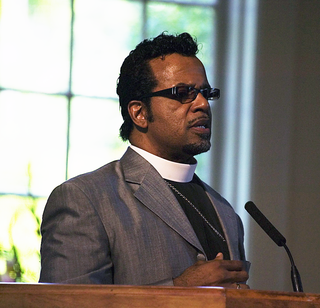A Quote by Leland Ryken
With so many contradictory renditions of the biblical text, the public has lost confidence that we can actually know what the Bible says. It is an easy step from this skepticism to an indifference about what the Bible says.
Related Quotes
Logically, taking Scripture seriously means being passionately concerned about interpreting it correctly and thus welcoming any evidence that exposes erroneous understandings of the biblical text. Unfortunately, many zealous Bible students and teachers confuse their favorite interpretations of the Bible with the Bible itself.
When we turn the Bible into an adjective and stick it in front of another loaded word, we tend to ignore or downplay the parts of the Bible that don’t quite fit our preferences and presuppositions. In an attempt to simplify, we force the Bible’s cacophony of voices into a single tone and turn a complicated, beautiful, and diverse holy text into a list of bullet points we can put in a manifesto or creed. More often than not, we end up more committed to what we want the Bible to say than what it actually says.
It's important for people in the Church to realize that the way they talk and think about the Bible isn't the way Bible scholars talk and think about it - and I'm including "Bible-believing" scholars there. There is a wide gap between the work of biblical scholars, whose business it is to read the text of the Bible in its own worldview context, and what you hear in church.
We, including many Christians, read the Bible through "eyes" conditioned by, and even accommodated to, modern Western culture plus the influences of messages and ideas from other cultures that are alien to the worldview of the biblical writers. Therefore, in order fully to understand the Bible and allow the Bible to absorb the world (rather than the world - culture - absorb the Bible) we must practice an "archaeology" of the biblical writers' implicit, assumed view of reality.
The ground we have in common with unbelievers is not the Bible, but our common needs, hurts, and interests as human beings. You cannot start with a text expecting the unchurched to be fascinated by it. You must first capture their attention, and then move them to the truth of God's Word. By starting with a topic that interests the unchurched and then showing what the Bible says about it, you can grab their attention, disarm prejudices, and create an interest in the Bible that wasn't there before.
[The Bible] has to be interpreted. And if it isn’t interpreted, then it can’t be put into action. So if we are serious about following God, then we have to interpret the Bible. It is not possible to simply do what the Bible says. We must first make decisions about what it means at this time, in this place, for these people.
The Heidelberg Catechism rightly says, for all Christians who allow the Bible to absorb the world for them - who see reality through the biblical story - that the purpose of life is to glorify God - a personal being who is ultimate over us and everything else - and enjoy him forever. This should be clear to all Christians, but many Christians have been influenced to think otherwise even about the Bible because of dabbling in movements such as the New Age Movement or the Gospel of Health and Wealth or even naturalistic humanism.
We are sometimes told that we are not a biblical church. We are a biblical church. This wonderful testament of the Old World, this great and good Holy Bible is one of our standard works. We teach from it. We bear testimony of it. We read from it. It strengthens our testimony. And we add to that this great second witness, the Book of Mormon, the testament of the New World, for as the Bible says, "In the mouth of two or three witnesses shall [all things] be established" (2 Cor. 13:1).
































